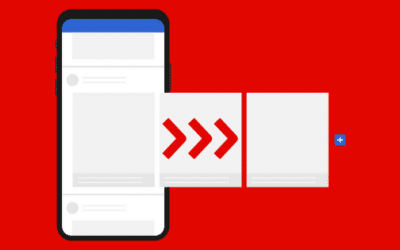Retail Training Director, what you are achieving has a name: Capability Academy (credits: Josh Bersin). Let’s dig into the concept of capability Academy by Josh Bersin (raised in 2021) and focus on how Retail training initiatives can be successful.
What is a Capability Academy according to Josh Bersin?
Enable people to enhance their job-related capabilities. In other terms, it is a place where people can learn, share, and develop their knowledge. In this place — ideally a digital learning platform — people discuss topics, receive feedback, collaborate with peers, and complete assignments, often under the supervision of a mentor, coach, or facilitator.
What we can learn from this definition is that a Capability academy is a very operational concept that fulfills employees with on-the-job development activities. It enables employees to grow their skills with concrete application, to collaborate / interact with peers, managers, coaches, to benefit from collective intelligence and to learn in the flow of work. In a very simple way, that summarizes well what a Retail Training Director does for its employees (internal or external). Let’s focus on how our successful Retail Training Directors are tackling their Capability Academy to make it bloom! (In regards with tips from Josh Bersin)
#1 Promise
The promise of your initiative should be clear. It should sustain the daily operations and be very concrete and « hands-on ». This involves that Retail Training department should be very knowledgeable about employee’s needs (Employee Centric). Examples of relevant promise: Your selling coach at your fingertips , Your daily ally to develop your expertise, Your skills development routine…
#2 Sponsor & Stakeholders
Forget about your HR and L&D colleagues, their role would only be supportive . Business sponsors and stakeholders are key to make it happen and to set operational goals. Successful initiatives have a strong sponsorship at a business level, whether it is the VP Sales or the CEO. It is what it takes to reach a business impact and to enhance the expertise of your sales force.
#3 Governance
Identification of operational ambassador and definition of their role and mission, Clear statement of the initiative’s ambition and objectives. Each deployment in a retail environment requires different kinds of ambassadors. Some will be SME (Subject Matters Experts) providing you with contents, other will be on-the-floor ambassadors (whether salesforce, boutique managers, wholesaler representative…). No matter their role, they are the best promoters if involved, they should know exactly what their objectives are.
#4 Mitigate Risks
What can go wrong? Mapping out a plan in terms of human, financial, expertises resources is key for success. This involves validating all those aspects prior to launch.
#5 Define SMART KPIs
The main question being, what happens if the Retail Training initiative is not deployed. What outcomes matter most for the company? Consider engagement metrics, completion rates, business-related goals, and surveys. Defining them prior to launch enables the project to be steered accordingly. Business related goals are complex to set up but are key for C-Level involvement. Examples of KPIs: Usage, Deployment Rate, Engagement Rate, Average Basket (of learning objects), Satisfaction Rate (NPS), Customer Turnover increase, Customer Support Request…
#6 Focus on improvement cycles
Building a Retail Training initiative is never coming to an end. Continuous improvement cycles enable the initiative to always be end-user centric by answering new needs, adjust approaches…
Let’s make the Josh Bersin theory become true! To find out more: What is a Capability Academy? Here’s the answer.

Cornélia a enfilé sa tenue de cosmonaute en 2017 en rejoignant Teach on Mars. Elle a d’abord dédié 5 années à accompagner les clients en tant que Customer Success Manager. Elle a ensuite pris une nouvelle trajectoire en pilotant les projets de communication et de marketing avec une ambition constante : explorer la galaxie pour renforcer la réputation de l’entreprise et soutenir son développement. Animée par une approche centrée sur le client, Cornélia contribue à renforcer les relations durables, la satisfaction des clients et à soutenir la croissance de l’entreprise.




